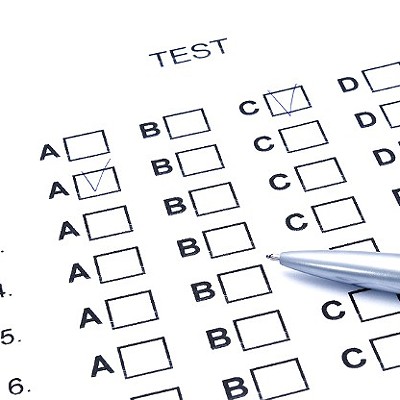A teenage girl walks into a classroom every day, usually a few minutes late. She then puts her head down on the desk and falls asleep.
When the teacher asks the kid why she even bothers to show up at all, the girl explains that she has two kids of her own (who are being taken care of, free of charge, at the day-care center elsewhere on campus), and her social worker has told her that if she doesn't show up to school, she won't get her government checks (yes, checks, multiple) every month.
In the same class, a hulking boy enters, earbuds in, cell phone in hand. He brushes past a couple of smaller boys and plops down in his seat. When the bell rings, he's still texting. The teacher tells him to put his electronic stuff away, but the kid keeps texting. Finally, he looks up, smiles slightly and flashes a gang sign. This kid is in the class because after he got popped for multiple crimes—some rather serious in nature—a judge (who needs to be taken out back and pimp-slapped) gave the kid a choice of going to jail or going to school.
Earlier in the year, the teacher had requested that, for the good and safety of others, the disruptive kid be removed from the class. He was told that since the kid consumed copious amounts of illegal narcotics, the kid's mom had used some idiotic federal loophole to get the kid a classification that prevents him from being removed from the classroom or the school. So, according to the screwed-up system, the fact that this knucklehead flunked multiple drug tests (and almost certainly continues to do so) actually enhances his ability to stay out of jail and in the classroom, where he makes life miserable for the teacher as well as for those students who might actually want to learn something.
The teacher, who, for obvious reasons asked not to be identified, says that he loves teaching. He finds his time in the classroom a "thrilling opportunity to do good things." He doesn't mind skipping lunch or staying after school to tutor those kids who ask for extra help. He even shrugs when he notes that his salary has gone down in recent years. (That's one of those things that the Frank Antenoris and Al Melvins of the world never mention when defending their recent War on Public Education. Thousands of teachers in Arizona have had their pay cut over the past few years, something that affects them in the present and will have a significant impact on them when they retire, as their pensions are based on their salaries over the final few years of their careers.)
However, after seeing what's on the horizon, the teacher has started to rethink his career choice: What's coming is standardized testing to be used for teacher evaluation. This is the latest rallying cry for the knee-jerkers on the right, as well as for far too many people in the Obama administration. During the recent Chicago teachers' strike, the main issue was not money, but rather the implementation of illogical and mathematically inefficient teacher-evaluation programs.
I'm all for testing. The analysis of standardized-test results can be a valuable tool in identifying areas of strength and weakness. But if the teacher's job depends on the outcome of those tests, that's short-sighted and stupid.
Take that teacher's classroom, for example. Let's assume that the two aforementioned miscreants are the only two anchors-around-society's-neck in the classroom. (They almost certainly aren't, but we'll pretend that they are.) Since those kids are going to produce nothing but zeroes all school year, you will need two kids who get nothing but 100 percent on everything all year just to counterbalance the negative effects. And since the chances of any kid getting nothing but 100s on everything are slim, those two kids at the bottom will likely erase the positive efforts of three or even four kids at the top. This skews downward the mean, the mode and the median.
I understand that some would use pre-testing and post-testing to evaluate progress during the school year as a means of teacher evaluation. This, too, would be inefficient and unfair. Let's say the class was trigonometry. (If the judge was stupid enough to put the gangbanger in school, he's certainly stupid enough to put the kid in a trig class.) The two dregs are going to start at zero and end at zero, for an improvement over the school year of (let's say it together) zero. But the good kids, who have done well in algebra and geometry, will be able to get at least some of the answers right on the pre-test. Even if they go on to get every question correct on the post-test at the end of the year, that's still not a 100 percent improvement, so, again, it will take several good kids to counterbalance the two zeroes.
There's really nothing wrong with testing, and teachers certainly need to be evaluated (and the bad ones need to leave). But this politically motivated push to use standardized tests as the main (or even sole) means for evaluating teacher performance is simply wrong.








